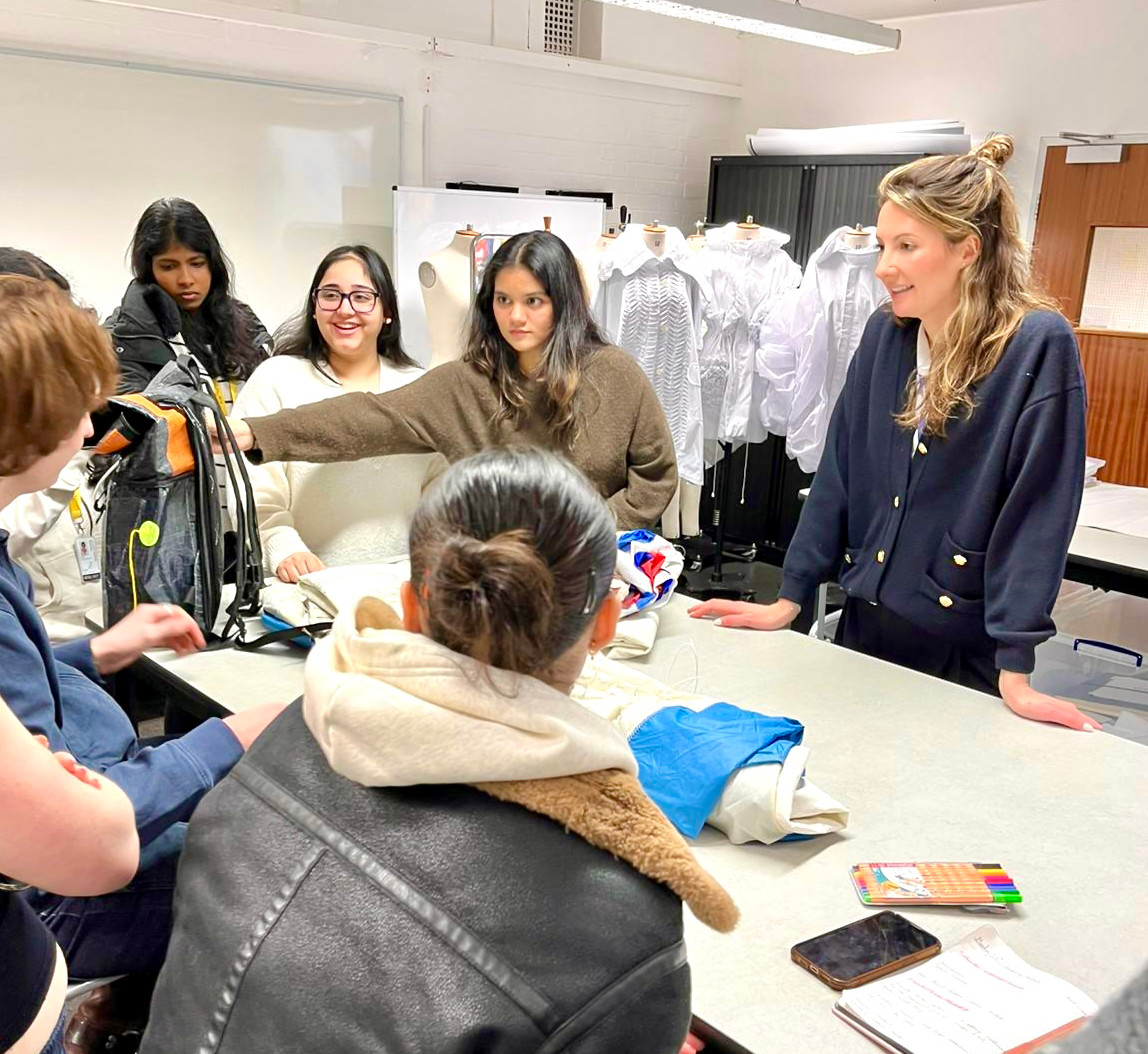Cambridge School of Art, Anglia Ruskin University, has teamed up with Clean Sailors on the University’s Sustainable Design and Innovation module where students explore sustainability within fashion – utilising minimal waste, surface textiles and upcycling techniques to communicate a message of protest.
The course raises awareness of particular social, cultural and environmental issues and the student’s final design and outcome for the project currently is apparel using a zero-waste pattern to form a contemporary patchwork made from recycled, end-of-life fabrics. For the 2025 course, Clean Sailors have donated a 30-year-old mainsail and a large spinnaker for students to evaluate and re-create into garments.
“It’s poignant for me as the mainsail was my grandfather’s – it had taken him across the Bay of Biscay, Azores and down to Cape Town before losing its integrity as a mainsail,” said Holly Manvell, founder of Clean Sailors.
“Protest through fashion has a powerful history. I spent my late teens in fashion industry and at the time designers such as Henry Holland and Katharine Hamnett were using slogans across garments to raise awareness of political issues, a movement of which Vivienne Westwood was really the queen of. So, it’s a beautiful full-circle moment for me personally whereby a family mainsail is now being used by students in the renowned Cambridge School of Art to explore sailcloth as a textile and through zero-waste patterns.”
“Since the 1800s, Cambridge School of Art has been inspiring creativity – thousands of students have studied with us and have become the next generation of artists, storytellers, policy-shapers and change-makers. Fashion is a trillion-dollar market globally, with a host of environmental challenges of its own. In this course we provide students with sustainable creative practices e.g. zero-waste design techniques and through our use of seemingly ‘waste’ textiles, we aim to encourage an innovative way of thinking about the future of fashion design,” said Sarah Graham, Lecturer in Fashion Design at the Cambridge School of Art.
“Having previously worked with recycling tents into clothing, we were looking for a new perspective on sustainable fashion and textiles. Sail fabric as a textile resource is even more hard wearing than the fabrics we have previously worked with, and we were interested to see how this versatile and underused fabric could feed into our student’s sustainable practice and make clothes more durable. We reached out to Clean Sailors after seeing the ReSail platform and how they were connecting the sailing community with project partners to upcycle sails into a range of lifestyle products. We were delighted when Holly replied with such enthusiasm and support for our project.”
The ‘Sustainable Innovation and Design’ module is available to first-year students on the Fashion Design undergraduate course at the Cambridge School of Art, running from January 2025. At the end of the term, Clean Sailors will award a prize for the highest-marked project as evaluated by the University, as well as choosing a winner for the ‘Clean Sailors prize’ for the most inspiring project.
“I’m so excited to see what these budding fashion designers create!” said Holly.

















